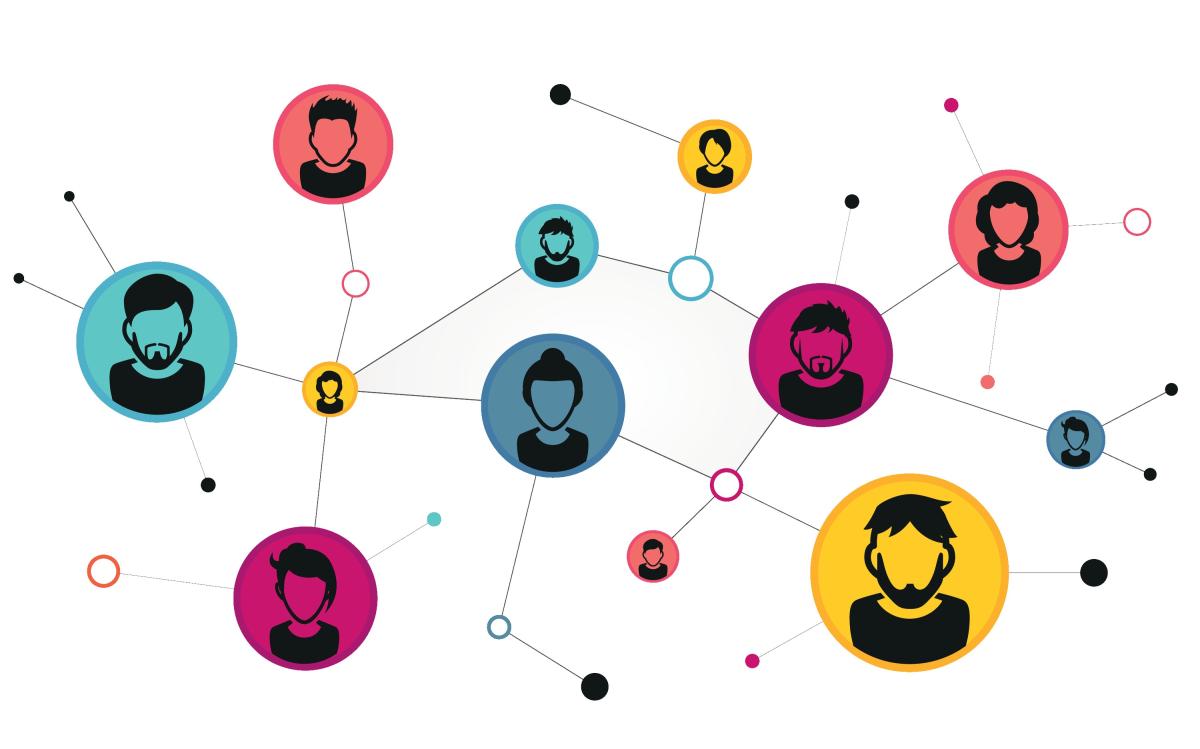
This course covers data collection and research design, visualisation and basic analytic methods used in social network research. It is designed for mixed methods and qualitative researchers. From 2021 the course has a greater emphasis on social media data collection and analysis. It also explores software for network-oriented online interview and survey data collection
This course will be run over 5 days over the following sessions:
- 9.30 - 10.30 Zoom session 1 (Consultations till 11.00.)
- 11.30 - 12.30: Zoom session 2.
- 1.30 - 2.30: Zoom session 3
- 3.00 - 4.00: Zoom consultations by appointment.
Exercises will be provided and Individual consultation sessions will be for 30 minutes to an hour for each participant by appointment.
Dr Dan Chamberlain is a Post-Doctoral Research Translation Officer, with the Victorian Collaborative Centre for Mental Health and Wellbeing. He is an accomplished social network researcher, working on projects in education, health, criminology, sociology, public policy, and network governance, with government, industry, and academic partners.
https://scholar.google.com/citations?hl=en&user=T49dtw0AAAAJ
This course is designed for social researchers using qualitative and mixed methods. The course builds from the basic, pioneering methodologies of Social Network Analysis (SNA): survey-based egonet SNA and sociometric, "whole network' SNA, and their extensions, to network sensitive ethnographies, community networks, web-based network surveys and research on social media activities. The course reviews the possibilities for working with rich network data from interview or online sources and the unique perspectives that qualitative and social research traditions bring to these tasks. The course explores ways to best manage and explore different kinds of network data in Excel, uses UCINET and NetDraw to produce network diagrams and descriptive statistics. We review other appropriate software related to participants' needs. The course serves as a transition to the associated ACSPRI courses Network Analysis in Social, Business and Political Research and Big Data Analysis for Social Scientists.
Network research designs covered in this course are:
- Surveys using ego-centric network (egonet) methods
- Network-sensitive ethnographies
- Sociometric (‘round robin’) ‘whole network’ studies and small group research
- Associational/ Affiliation (‘2-mode’) networks (including ethological studies)
- Cognitive mapping and socio-cognitive mapping (SCM)
For each methodology we consider the best ways to code and manage raw data, the most efficient formats for importing such data into visualisation and analysis software and appropriate measures and statistics for reporting findings. We also discuss the process of relating validated findings to broader research questions (‘meta-inference’), extrapolating them to other settings and associated questions of research design.
Day 1
- Course aims and class introductions;
- Research templates and example datasets;
- Egonet data collection;
- Coding and organizing network data;
- Using NetDraw and UCINET.
Day 2
- Diagrams and data analysis for egonet data;
- Sociometric data and whole network fundamentals;
- Random graph simulations;
- WN data analysis - Cohesion;
- WN data analysis - Centrality;
- Comparing networks.
Day 3
- Working with multiple relations and rich tie data;
- Associational (2-mode) data and analysis;
- (Latent) subgroup detection and in-group/ outgroup modularity;
- Boundaries, hot spots and clusters;
Day 4
- Cognitive Data and socio-cognitive mapping;
- Web-based network surveys and partial sociometric datasets;
- Consultations with instructor
Day 5
Mini-conference: Participants present a short account of the particular project they have worked with through the course.
In this course you will use UCINET and NetDraw, which are available from here: http://www.analytictech.com/ucinet/download.htm
The software is not compatible with Macs, if you are an Apple user you will need to run a Windows emulator such as bootcamp in order to use the software. If you are using a university machine, you may need to have your IT department help you install it.
The other piece of software you will be using is Excel, using an equivalent package should be fine.
Training in this course will be 'live' using zoom over the following sessions:
- 9.30 - 10.30 Zoom session 1 (Consultations till 11.00.)
- 11.30 - 12.30: Zoom session 2.
- 1.30 - 2.30: Zoom session 3
- 3.00 - 4.00: Zoom consultations by appointment.
Questions are encouraged.
Individual consultation sessions will be for 30 minutes to an hour for each participant by appointment.
No prior knowledge of social network analysis is required.
Participants should be comfortable with using spreadsheets (Excel), have some social science background and be familiar with discussions of research methods.
Customised course materials will be made available through the ACSPRI course content website and via Zoom
- Scott, J. (2013). Social Network Analysis, SAGE Publications.
- Borgatti, S., M. Everett and J. Johnson (2013), Analyzing Social Networks, SAGE Publications.
- Garry L. Robins, Doing Network Research: Network-based Research Design for Social Scientists (2015), SAGE Publications.
- Borgatti, S. P., M. G. Everett, et al. (2002). Ucinet 6 for Windows: Software for social network analysis. Harvard, Analytic Technologies. Manual; User Guide. www.analytictech.com
- Perry, B. L., et al. (2018). Egocentric Network Analysis: Foundations, Methods, and Models. Cambridge, Cambridge University Press.
Q: What is social network analysis?
A: is a strategy for investigating social structures through the use of network and graph theories. It characterizes networked structures in terms of nodes (individual actors, people, or things within the network) and the ties or edges (relationships or interactions) that connect them.
This course had a good balance. Lectures that weren't too high level, but didn't oversimplify. Hands-on learning in the software with plenty of guidance and explanation. Additional readings provided and Dan was able to guide towards appropriate sources for more specific questions.
The content was scaled to the needs of our group, which was fantastic.
Good introduction and background on the first day then lead into detail, plenty of opportunity to ask questions and lots of examples.
Quite broad coverage of different methods and analysis, good to learn about egonets, whole of network analysis and two-mode data.
Course was extremely useful, very knowledgeable teacher who provided great feedback and allowed for need of participants to drive & complement their teaching.
There was a balance between conceptual understanding procedural skills (software tools) and research design/application. The sequence and balance worked very well.
This course was fundamental to my research design.
This is the complete research method I am using & the course has made it less overwhelming to use.
It was excellent getting the overviews & theoretical info first & then apply this to the real data.
Will provide a methodology that I can use in a current research project.
Course was suitably practical, very valuable much focussed on learning a new analysis package.
Customised course materials will be made available through the ACSPRI course content website and via Zoom
